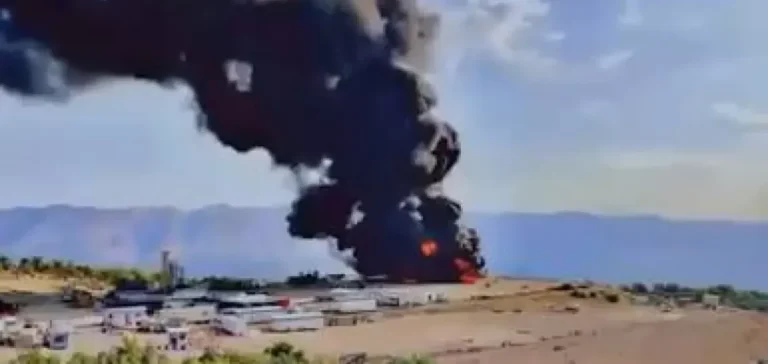Operations at several oil fields in northern Iraq have been disrupted following a series of drone attacks on Wednesday morning, directly affecting the energy activity of Iraqi Kurdistan. According to the region’s counter-terrorism services, the Pechkabir, Tawke fields and a site managed by the United States in Dohuk province were targeted by airborne explosive devices. These attacks occurred one day after a similar incident led to the suspension of production at the Sarsang site.
Increase in attacks on oil sites
The Pechkabir oil field, operated by the Norwegian company DNO ASA (Det Norske Oljeselskap), was struck twice early in the morning, followed by an attack on the Tawke field in the Zakho district. At 07:14, another drone targeted a site operated by an American entity in Dohuk. No casualties were reported during these incidents, but local oil operations experienced temporary disruptions, according to information gathered from regional authorities.
The Wednesday events bring to five the number of oil fields affected in the autonomous region of Kurdistan within a week. Previous attacks include material damage at the Khourmala field, also located in Dohuk province, and the suspension of activities at Sarsang, operated by the American company HKN Energy, following a drone strike the day before.
Ongoing tensions and challenges for oil production
Iraq remains exposed to drone and rocket attacks, with no official claims to date, in a context of geopolitical rivalries involving Iran, the United States, and Israel. Tensions have recently increased between Baghdad and Erbil, the Kurdish regional capital, regarding oil exports. Since 2023, the main pipeline linking the region to Turkey has remained closed due to legal disputes and technical difficulties, further complicating the situation for international operators.
On Monday, authorities reported the downing of a drone near Erbil airport and additional strikes on the Khourmala oil site, causing material damage. Despite the multiplication of attacks, the Iraqi Kurdistan region maintains its attractiveness for foreign investment, due to its political and economic ties with the United States and several European countries.
The latest attacks highlight the vulnerability of energy infrastructure in Iraqi Kurdistan, as the security of the sector remains a central issue for international operators. According to Kurdish forces, protection of oil sites continues to be strengthened in an environment marked by ongoing volatility.






















